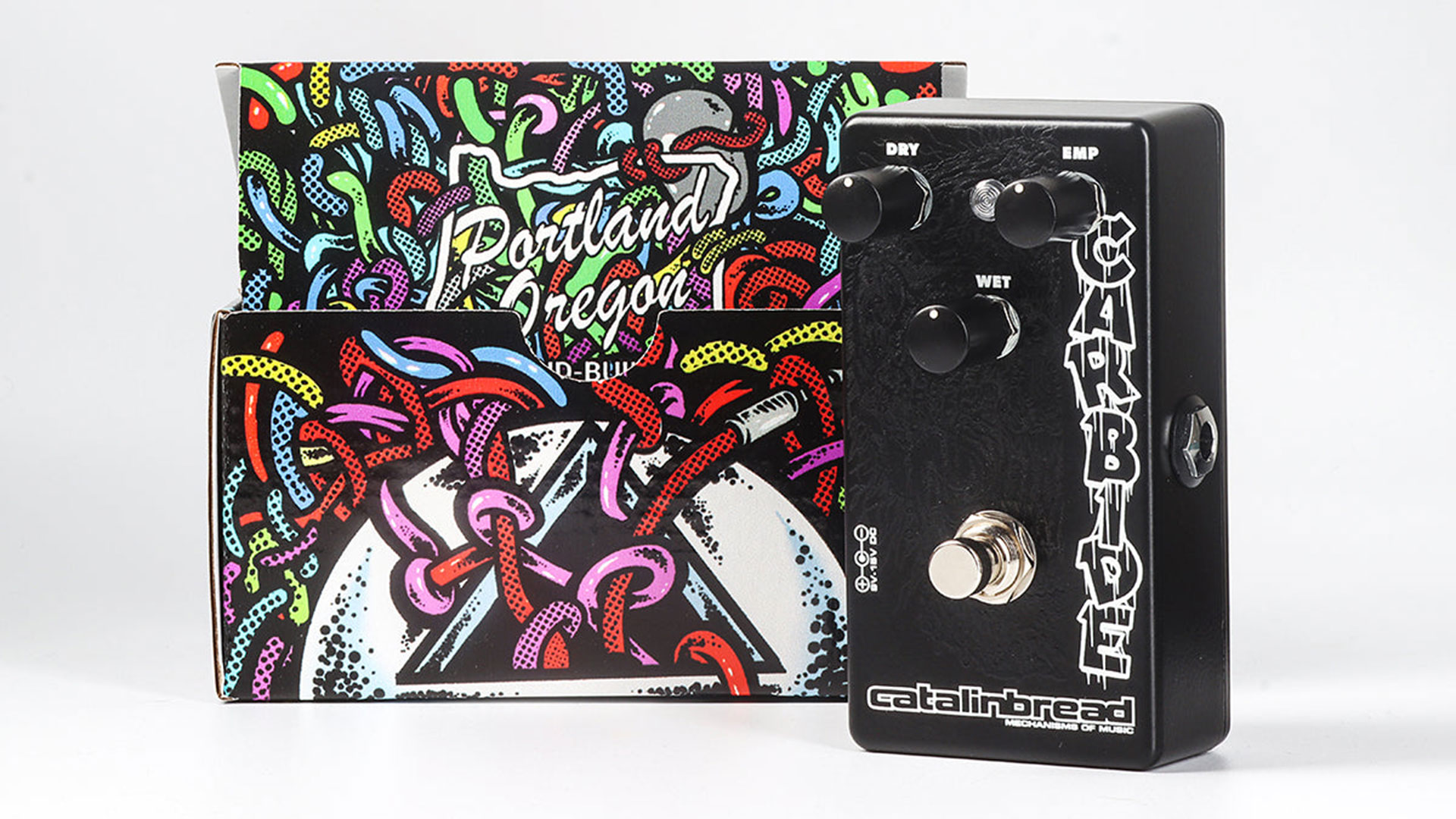The Catalinbread Carbide takes a fully cranked Boss HM-2 and makes its chainsaw tones (moderately) more usable
This vicious new metal distortion takes the HM-2 build in the opposite direction of EHX’s recent Hell Melter

Catalinbread has dropped the menacing Carbide Distortion – its take on the classic Boss HM-2 ‘chainsaw’ distortion pedal.
Metal tonehounds have long prized the original Boss unit for its ultra-aggressive tones and the unit was a staple with the Swedish death metal players of the ’90s – typically with every knob cranked to full. However, production stopped in 1991 and, until recently, guitarists in search of the sound were mostly limited to used pedals.
In 2021, Boss issued the HM-2W – an upgraded, Waza Craft take on the box. Then, just last month, Electro-Harmonix debuted its own interpretation of the classic circuit, the Hell Melter, which offered further gain and boost and new levels of control.
Catalinbread’s Carbide takes things in the opposite direction to EHX, favoring a three-knob control set that simplifies the original setup. You’ll find no mini-toggles, mode switches or internal options here, then – just three dials and a footswitch.
Unusually, there are no conventional Gain or Tone controls. Instead, the Carbide always replicates an HM-2 with all controls dimed, adjusting the overall sound with Dry, Wet and Emphasis knobs.
Dry is essentially a (relatively) clean boost, Wet adds in distortion tones and Emphasis is an EQ that tapers off the low-end as it’s rotated.
Set Wet to full and you have the classic chainsaw sound, its bass response tamed by the Emphasis control. Back off the Wet and bring up the Dry, and you’re into more bass-y crunch territory.
Get The Pick Newsletter
All the latest guitar news, interviews, lessons, reviews, deals and more, direct to your inbox!
It’s worth noting that the Carbide is still inspired by one of the most vicious distortions out there, so even with the Wet backed right off, it does not do clean boost in the traditional sense. Indeed, when it comes to the Carbide, crunch is the new clean.
The pedal has already been on the ‘boards of a healthy selection of YouTube demo channels, so you can check out some of the tones on offer above, but suffice to say this is very much not your one-stop do-it-all dirtbox…
The Carbide retails for $189.99. For more information, head to Catalinbread.

Matt is Deputy Editor for GuitarWorld.com. Before that he spent 10 years as a freelance music journalist, interviewing artists for the likes of Total Guitar, Guitarist, Guitar World, MusicRadar, NME.com, DJ Mag and Electronic Sound. In 2020, he launched CreativeMoney.co.uk, which aims to share the ideas that make creative lifestyles more sustainable. He plays guitar, but should not be allowed near your delay pedals.
“The original Jordan Boss Tone was probably used by four out of five garage bands in the late ’60s”: Unpacking the gnarly magic of the Jordan Boss Tone – an actual guitar plug-in that delivers Dan Auerbach-approved fuzz
“This is a powerhouse of a stompbox that manages to keep things simple while offering endless inspiration”: Strymon EC-1 Single Head dTape Echo pedal review









